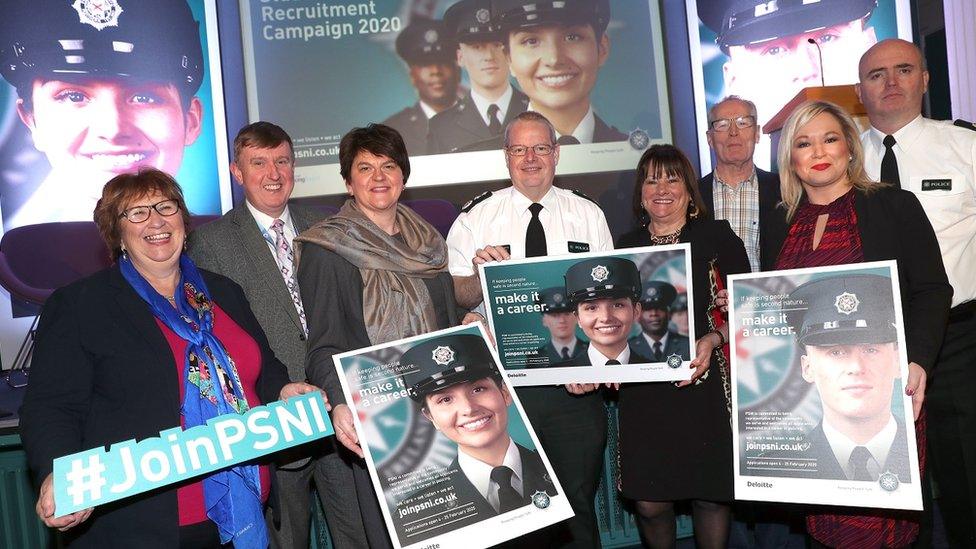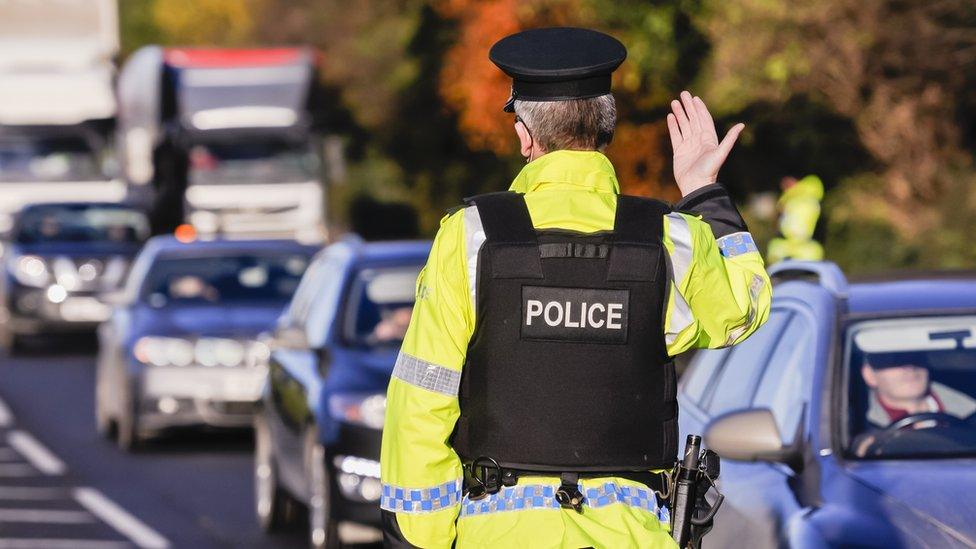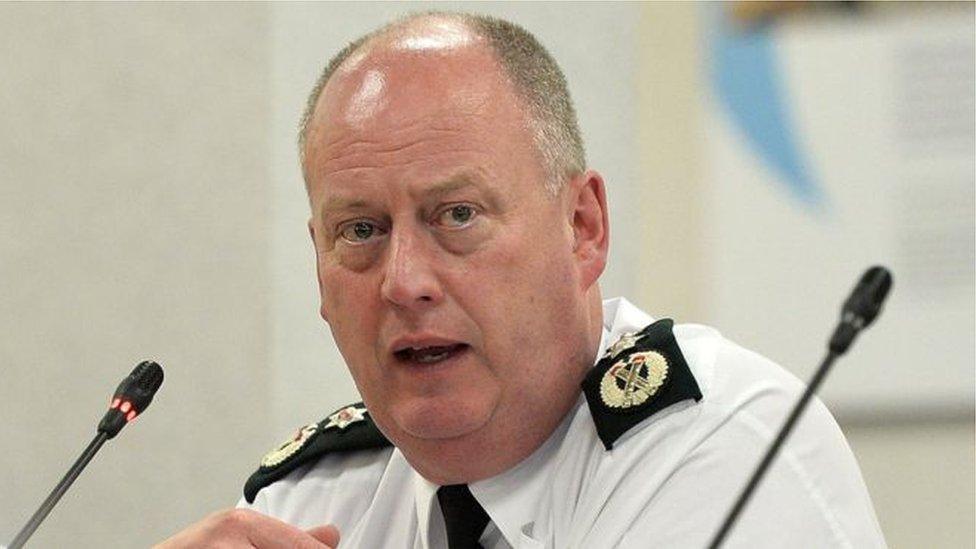PSNI recruitment: Sinn Féin backs new campaign
- Published

Politicians and representatives of civic society attended the launch event
The chief constable said the attendance of deputy First Minister Michelle O'Neill at the launch of the PSNI recruitment campaign got it off to "the best possible start".
Simon Byrne launched the campaign on Tuesday.
It comes amid continued concerns over the PSNI's ability to increase numbers of Catholic officers.
Ms O'Neill is deputy leader of Sinn Féin - its support is seen as important in encouraging more Catholic recruits.
She was one of a number of politicians at the event - including First Minister Arlene Foster - as well as representatives of churches and sporting bodies, such as the Gaelic Athletic Association (GAA).
Mr Byrne said: "We don't underestimate the significant step forward Sinn Féin has taken in endorsing this campaign merely by being here and beginning a conversation about how we can work differently to improve policing right across the country.
"I am very pleased."
Sinn Féin has historically been critical of the role of the police in Northern Ireland, both the Royal Ulster Constabulary (RUC) and the Police Service of Northern Ireland (PSNI), which replaced it in 2001.
In 2007 the party gave its support to the PSNI, but its representatives have not attended passing out parades for new recruits.
'Reflective of community'
In the lead-up to the new campaign, the first since October 2018, there has been debate about whether a return to 50-50 recruitment is required.
A 50-50 recruitment policy ran for the first 10 years of the PSNI until 2011.
This meant that 50% of all recruits had to be from a Catholic background, and 50% from a Protestant or other background.
The policy saw numbers of Catholic police officers rise from 8% to 32%, but things have stalled years after it ended.
Anne Connolly, chair of the Policing Board, told the BBC News NI Evening Extra programme said Sinn Féin's attendance at the launch was "a wonderful thing".
"It provides hope for future work," she said.

Former chief constable Sir George Hamilton warned last year that numbers were "going to start to dip, external if nothing changes".
Sinn Féin, the SDLP and senior Catholic clergymen favour its reintroduction, which would be a political decision, but unionists oppose it.
Deputy First Minister Michelle O'Neill said her attendance at the recruitment campaign launch "speaks volumes".
"We need a PSNI that is reflective in terms of the community in which it serves," she said.
First Minister Arlene Foster welcomed the recruitment drive, describing it as "significant".
"It is important because there's been a lot of conversations about the fact we need to have a police service that reflects Northern Ireland's society," she said.
50-50 campaign
Applications are open for about three weeks, with the first part of the process handled by professional services firm Deloitte.
Later stages of selection, conducted by the PSNI, involve criminal background checks and physical tests.
The PSNI is also aiming to attract more women and people of ethnic backgrounds.

Analysis: A big step
By Julian O'Neill, BBC News NI Home Affairs Correspondent
Michelle O'Neill attending the launch of the new recruitment drive felt like a big step.
One long-serving PSNI commander even wondered if it was the policing equivalent of the Queen visiting Dublin.
Sinn Féin endorsing Northern Ireland policing in 2007 was of course more notable.
So, arguably, was the late Martin McGuinness's very strong condemnation of dissident murders of PSNI officers.
Mrs O'Neill stopped short of urging young Catholics to join in her comments to the media.
Cynics also point out there is an election in the Republic of Ireland.
But for a party that has not attended passing out parades for new recruits, this was a significant moment in the party's relationship with the PSNI.

It is not the only challenge facing the PSNI, as it strives to better reflect the composition of Northern Ireland society.

Former Chief Constable George Hamilton issued a warning over 50-50 recruitment
It has 6,900 officers and publishes data on their backgrounds.
Sixty-seven percent are "perceived" as being Protestant, 32% Catholic and 1% are from an ethnic minority.
Seven in every 10 officers are male.
The PSNI is also conscious of needing to improve interest from working class Protestants and members of the LGBT community.